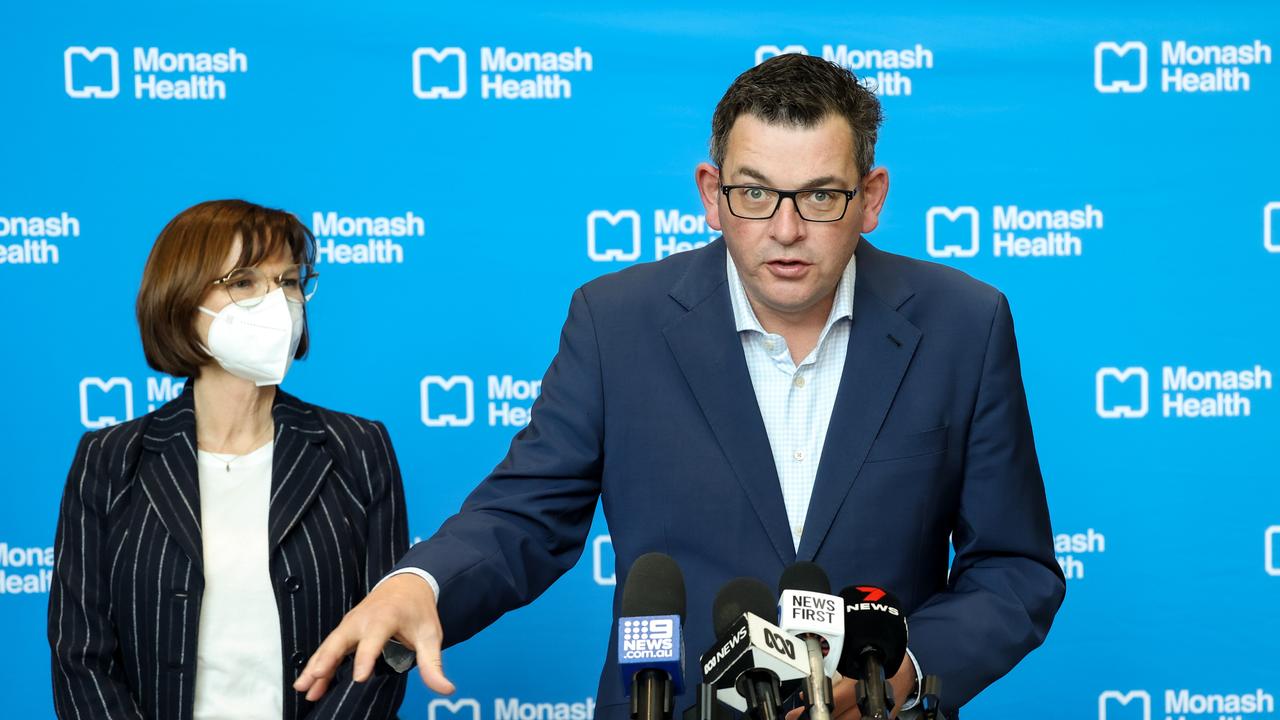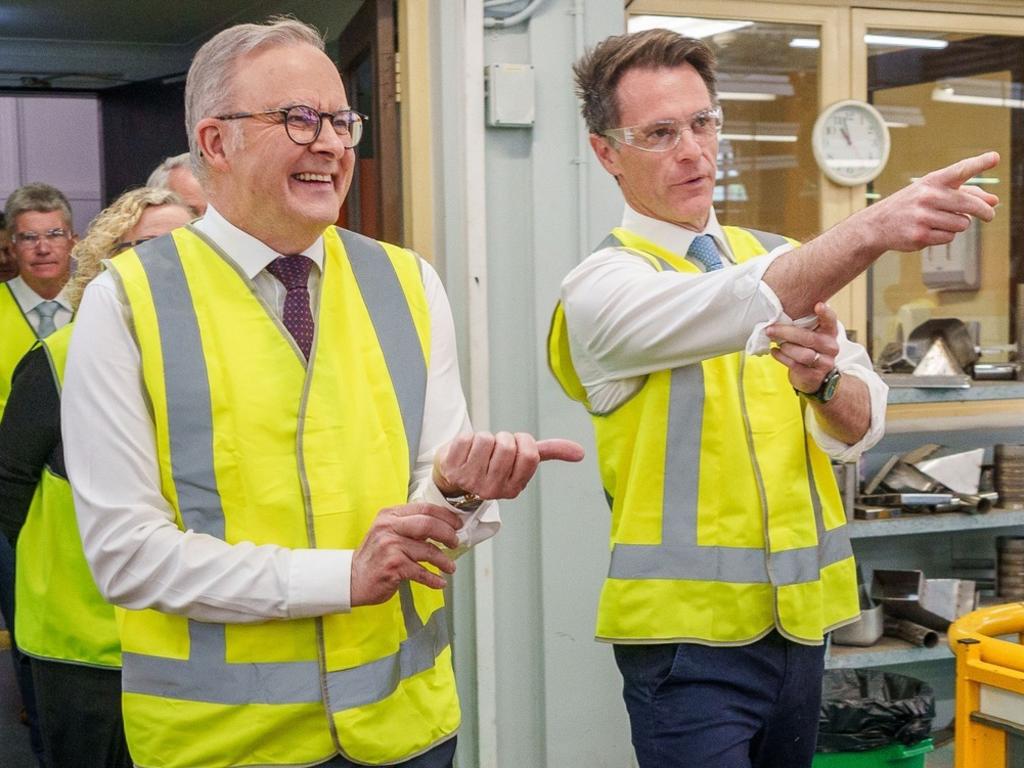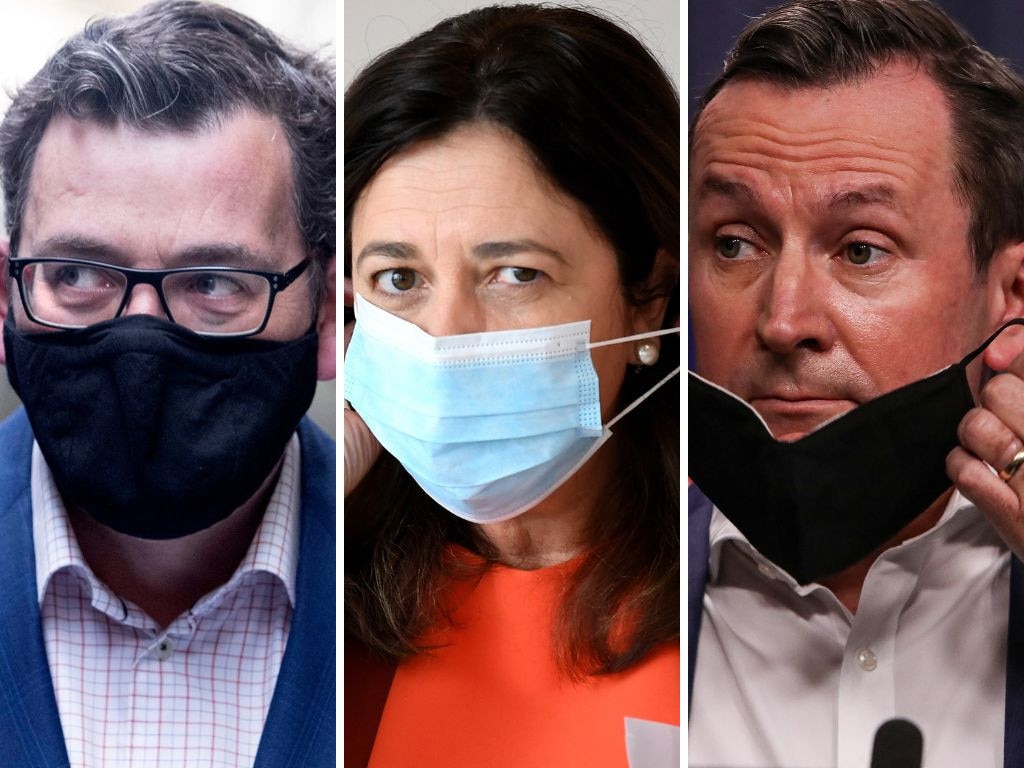Nation’s pandemic pain deserved more than bureaucratic jargon


In terms of the taxpayer money spent and the restrictions imposed on citizens, it doesn’t get much bigger than this. The relevant persons should have been made to provide evidence and be subject to close examination and scrutiny.
It is perhaps understandable that state governments shied away from this option; let’s call it the nuclear one.
There is just too much to hide and too many actions for which there were no justifications. They would prefer to move on and declare “nothing to see”.
Why the Albanese federal government would rule out a royal commission is less clear-cut. After all, it was the Coalition Morrison government that was in power for most of the duration of the pandemic.
There might even be some political points to score were it not for the fact Labor overwhelmingly supported the extravagant and liberty-sapping initiatives of the federal and state governments at the time.
Bear in mind here that most state governments were Labor at the time.
In its place, the Albanese government, through the Department of the Prime Minister and Cabinet, commissioned an independent inquiry led by a panel of three women, including one with public health expertise and another an economist. The terms of reference were limited and specifically excluded an examination of actions taken by state governments independently of the federal government. In this way, any analysis of the most egregious actions taken in the name of Covid was specifically ruled out.
Judged by the much-delayed release of the report, Covid-19 Response Inquiry: Lessons for the Next Crisis, it’s apparent the authors have been taking lessons from the master of the word salad, Kamala Harris. There are just so many flowery words and meaningless sentences in the summary.
We are told “there is undoubtedly much to forget, but there is also much to be proud of as a nation”. And what about this guiding recommendation: “Build, value and maintain capability, capacity and readiness across people, structures and systems”? One wonders what this even means.
We are then told “pandemics invariably involve making decisions in the face of significant uncertainty. However, the existence of strong, secure, readily adapted, interoperable data systems, processes and capacity for generating, synthesising and communicating evidence can reduce this uncertainty by providing governments with the evidence-based intelligence they need to assess risks and minimise harm”. Again, I’m not really any the wiser.
Rather than this rambling, verbose report full of bureaucratic language, it would have been far better to just bluntly state the facts and let those facts speak for themselves. We spent far too much money; we imposed far too many restrictions; and we allowed our politicians and bureaucrats to grab far too much power.
Our children were damaged by unjustified school closures even though young people were never much at risk from the disease. A damaging bout of inflation was set off and there was a step-up in the size of government that shows no sign of receding.

While we may have flattened the curve initially, in subsequent years the excess deaths have demonstrated that it’s possible to alter the timing but not the course of the disease. In the meantime, other preventable deaths for other reasons have occurred.
We made the serious mistake of trusting public health officials without acknowledging that these experts understand only the supposed benefits of restrictions, such as controlling people movement, while ignoring the costs.
To allow the chief health officers of the states to be calling the shots was simply wrong. They were often just making stuff up – like closing the playgrounds in Victoria, shutting schools and imposing nightly curfews.
We tolerated the mandating of vaccines even knowing the vaccines had not be subject to thorough, longitudinal evaluation. In fact, one of the main vaccines used here, the AstraZeneca one, has now been taken off the market.
This was an unforgivable restriction on people’s liberty, particularly as it became clear very early on that the vaccines – they were just shots – had no significant impact on population transmission. There has been grossly inadequate compensation for those whose careers were affected and for those adversely affected by the vaccines.
As for economic responses such as JobKeeper, far too little attention was paid to the details. There was no transparency about the recipients – in similar schemes overseas, there was full transparency; there was inadequate attention paid to compliance; and many casual workers received large windfall gains in terms of their income. It has been estimated that at least $25bn was overspent relative to a well-managed wage replacement scheme.
The fact things were done in a rush was not an excuse. Other countries managed to do it better and with similar resources and timing in terms of bureaucratic advice. The establishment of the national cabinet was another error because it diluted the accountability of state governments while forcing the hand of the federal government to pick up the tab for any decisions they made. Had the generous JobKeeper not been in place, for instance, some of the state governments would have had to rethink the requirement for most businesses to close.

It turned out to be politically toxic for Scott Morrison because he was forced to own many of the increasingly unpopular restrictions. When people were prevented from being with their dying relatives, when people were unable to return to their own residences, when people’s mental health deteriorated as a result of isolation – these things really began to weigh on the judgment people made about what was being imposed upon them.
As for the suggestion in the report that there should be an Australian Centre for Disease Control, dare I suggest that the last thing we need is yet another government agency? There are far too many government agencies currently. The last thing we need is this one, modelled along the disastrous US example.
And as for more communication, again, spare us all. Victorians had to put up with the daily monologues from then premier Dan Andrews in his North Face jacket, and ponderous chief health officer Brett Sutton. The truth is they were mainly talking out of their hats.
The chief health officers in the other states were little better. Surely, the suggestion of the South Australian CHO to refrain from touching the football lest you catch Covid, or the fake story about the contaminated pizza, should go down in the annals of pandemic stupidity. Add in the Queensland officer who thought closing the schools sent the right message even though there was no evidence to back it up.
The one sentiment in this pointless report I agree with is: “Trust has been eroded and many of the measures taken during Covid-19 are unlikely to be accepted by the population again.” Let’s hope so.






If ever there were an event that justified a royal commission, it was the response to Covid-19.